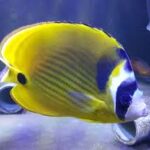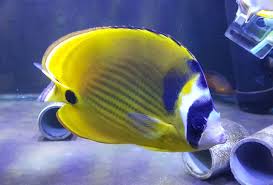
Flowers have long been revered for their beauty, but their therapeutic properties have also been recognized by various cultures throughout history. From traditional remedies to cutting-edge medical research, flowers continue to play a significant role in medicine and healthcare. Exploring both traditional practices and modern scientific advancements sheds light on the potential benefits of flowers in promoting health and advancing medical research.
**Traditional Uses of Flowers in Medicine:**
1. **Herbal Medicine:** Many cultures have relied on herbal remedies derived from flowers for centuries to treat a wide range of ailments. Flowers such as chamomile, lavender, and calendula are known for their calming and anti-inflammatory properties, while others like echinacea and elderflower have been used to boost the immune system and fight infections.
2. **Aromatherapy:** The practice of aromatherapy involves using essential oils extracted from flowers to promote physical and psychological well-being. Inhalation or topical application of oils from flowers such as rose, jasmine, and ylang-ylang is believed to alleviate stress, improve mood, and relieve various symptoms, including headaches and insomnia.
3. **Traditional Healing Practices:** In traditional medicine systems such as Traditional Chinese Medicine (TCM) and Ayurveda, flowers are used in formulations to restore balance and harmony in the body. Herbal blends containing flowers like hibiscus, lotus, and honeysuckle are prescribed to address specific health concerns and support overall wellness.
**Modern Applications in Medical Research:**
1. **Phytochemical Studies:** Modern scientific research has delved into the bioactive compounds present in flowers and their potential pharmacological effects. Phytochemical analysis of flower extracts has identified compounds with antioxidant, anti-inflammatory, antimicrobial, and anticancer properties, paving the way for the development of novel therapeutic agents.
2. **Drug Development:** Flowers serve as a source of inspiration for the development of pharmaceutical drugs. Compounds isolated from flowers have been investigated for their ability to target disease pathways and treat conditions such as cardiovascular disease, cancer, neurodegenerative disorders, and metabolic syndromes.
3. **Biotechnology and Biomedical Engineering:** Advances in biotechnology and biomedical engineering have enabled the production of flower-based biomaterials and bioactive compounds for medical applications. Flower extracts and floral-derived polymers are being explored for use in drug delivery systems, wound healing, tissue engineering, and regenerative medicine.
**Integration of Traditional and Modern Approaches:**
1. **Evidence-Based Medicine:** Integrating traditional knowledge with modern scientific methods allows for evidence-based validation of the efficacy and safety of flower-based remedies. Clinical trials and experimental studies provide insights into the mechanisms of action and therapeutic potential of flower-derived compounds, ensuring their acceptance and integration into mainstream healthcare practices.
2. **Personalized Medicine:** Advances in genomics and pharmacogenomics have opened new avenues for personalized medicine approaches that take into account individual genetic variations and responses to treatment. Flower-based therapies can be tailored to individual patient needs, optimizing outcomes and minimizing adverse effects.
3. **Holistic Healthcare:** Recognizing the interconnectedness of mind, body, and spirit, holistic healthcare approaches incorporate flower-based therapies alongside conventional treatments to address the root causes of illness and promote overall well-being. Integrative medicine clinics and wellness centers offer a range of services that harness the healing power of flowers in combination with other modalities such as nutrition, mindfulness, and physical activity.
**Conclusion:**
In conclusion, flowers hold immense potential in medicine and medical research, drawing upon both traditional wisdom and modern scientific innovation. From ancient herbal remedies to cutting-edge drug discovery and biotechnology, flowers continue to inspire healing and hope in the pursuit of health and wellness. By embracing the synergies between traditional and modern approaches, we can unlock the full therapeutic potential of flowers and harness their benefits for the benefit of individuals and communities worldwide.










